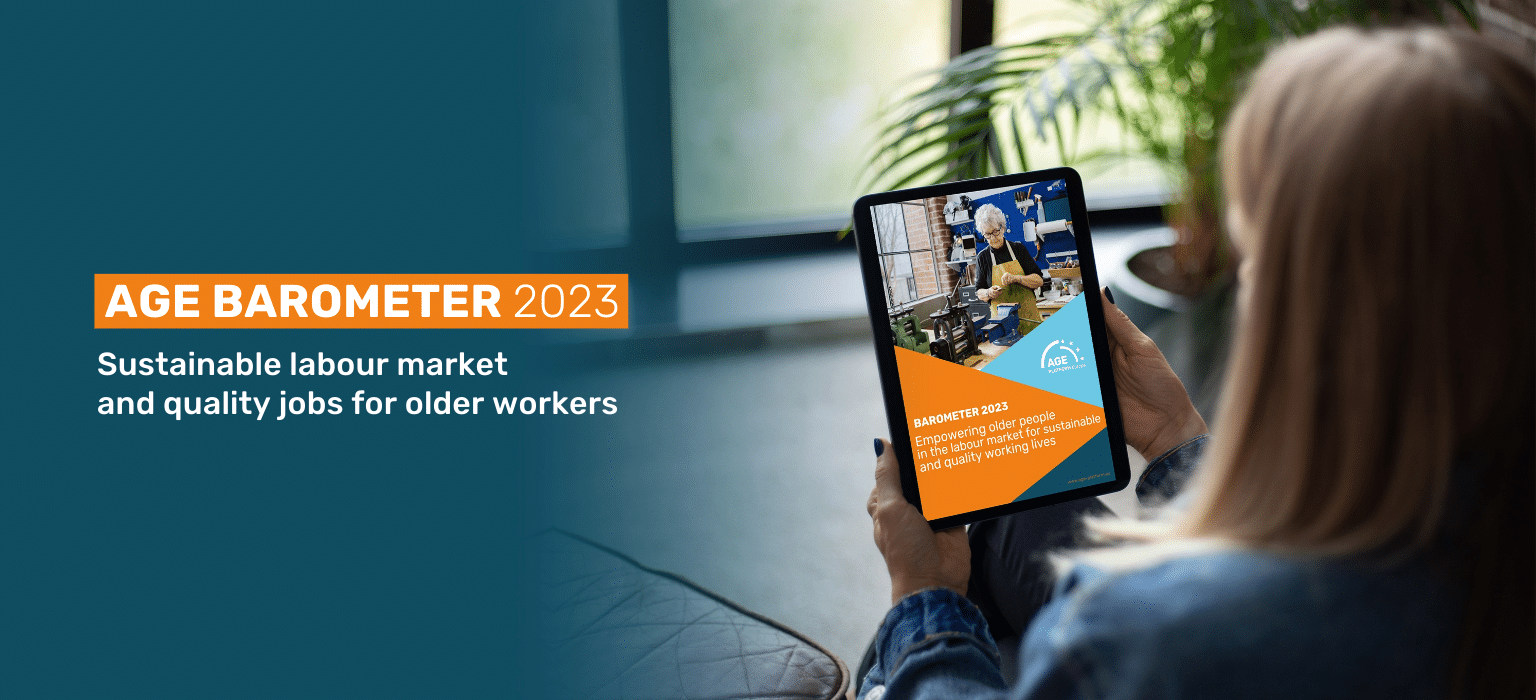Romania
Information provided by the National Federation Omenia/Federatia Nationala Omenia and desk research

Support in the labour market
The employment rate of 55–64-year-olds is the lowest of all Member States: 46.7%.
There do not seem to be many initiatives in terms of career monitoring and management. Career reviews seem to be more commonly accepted when a retiree wishes to work beyond the legal retirement age or when changes and reorganisations are planned within the company.
The health crisis linked to the COVID-19 pandemic has led to an exacerbated vulnerability of the labour market. According to a survey conducted by IPSOS, it seems that 60% of Romanians have suffered, from a professional point of view, from the pandemic. In particular, people aged 45-54 have been the most affected by job loss.
In Romania, law no. 76 of 16 January 2002 lays down provisions to protect people against the risk of unemployment, to ensure a high level of employment and to adapt the workforce to the requirements of the labour market. In particular, this law provides that in order to prevent unemployment and strengthen jobs by increasing and diversifying employees’ professional skills, employers who organise vocational training programmes for their employees are partly financed from the unemployment insurance budget.
This law also provides job-search assistance that is focused on the individual. The National Employment Agency is required to provide information and advice, define the job seeker’s profile and level of occupation, and offer activities to develop skills and self-confidence so that job seekers can decide on their own careers.
Support for job seekers, especially older job seekers, is expanding and improving. According to the Proposal for a Joint Employment Report 2022, Romania launched a project in December 2020, funded by the European Social Fund, to modernise the structures of public employment services by developing case management services for job seekers, including people in vulnerable situations such as older job seekers.
According to the Joint Employment Report 2022, Romania also plans to launch a new platform to improve public employment services for employers, including the training of 900 people and actions to foster cooperation with territorial employment agencies, thus facilitating the accessibility of services needed for job search by older job seekers.
To protect older workers at risk of unemployment, Romanian legislation provides for the possibility of early retirement. However, the conditions for access to this early retirement are quite strict. The older worker concerned must be within 5 years of retirement and have completed a contribution period of at least 8 years in excess of the full contribution period as stipulated by law.
The inclusion of pensioners in the labour market is made possible by Law no. 263/2010 on the unitary public pension system, which establishes that people who retire at the statutory age may receive, in addition to the pension, income from wages or self-employment, such as money from copyright activities or rents.
In Romania, pensioners’ mutual societies are among the oldest entities in the social economy in Romania. Organised around the values of self-help, they encourage the work of older people in management and implementation structures, their participation in training programmes, socialisation, sports and cultural activities. Thus, the 130 self-help organisations that are members of the AGE member Omenia National Federation offer quality jobs (part-time or full-time) to more than 1,000 older people nationwide (over 65 years of age), but also to younger people who ensure the implementation of social and financial inclusion activities for older members.
Lastly, Romania has one of the lowest gaps in Europe between men’s and women’s earnings. There is indeed complex national legislation that promotes equal opportunities between women and men, thus aiming to reduce the accumulation of discrimination against older women in the labour market. Among these measures, Law no. 202/2002 on equal opportunities and equal treatment between women and men, with its subsequent amendments and additions, regulates the measures to promote equal opportunities and equal treatment between women and men, in order to eliminate all forms of discrimination based on sex, in all spheres of public life in Romania.
Age discrimination in employment
The Governmental Ordinance No. 137/2000 is the transposition at national level of the European directive 2000/78/EC. It ensures the prevention of all forms of discrimination and has the authority to investigate, acknowledge and apply sanctions. The Governmental Ordinance defines discrimination as “any distinction, exclusion, restriction or preference based on race, nationality, ethnicity, language, religion, social status, beliefs, gender, sexual orientation, age, disability, chronic non-contagious disease, HIV infection membership of a disadvantaged group and any other criteria which have the purpose or effect of restricting or eliminating the recognition, use or exercise of human rights and fundamental freedoms or of the rights recognised by law in the political, economic, social or cultural fields or in any other field of public life.”
The Romanian national authority for the protection of human rights and the fight against discrimination is the National Council for Combating Discrimination (NCCD). It guarantees the respect and application of the principle of non-discrimination, in accordance with national and international legislation.
Communication about ageism is almost non-existent. Although there is strong legislation protecting workers. There are some private campaigns/projects aiming to support older workers and older jobseekers. This is the case of Angajez 45+ (I hire 45+) – a platform for employers and employees over 45 years old that started in 2018 to raise awareness and mobilise to end age discrimination in the Romanian labour market and more specifically in the recruitment process. The Platform wants to serve as a link between all actors in the labour market with the aim of facilitating communication between the different actors.
Workplaces for all ages
In December 2022, Romania adopted a new strategy for active ageing and long-term care 2023-2030. It focuses in particular on improving access to quality medical services, especially for people living in rural areas. The strategy refers to the reform of long-term care for older people and the promotion of active ageing, which includes, among other things, investment in the establishment of a number of decentralised day-care centres at national level for dependent older people, with mobile home-care teams, which should better support informal carers.
In the last few years, Romania has participated in OSH campaigns organised by the European Agency for Safety and Health at Work, notably, the EY Healthy Workplaces Lighten the Load campaign from 2020 to 2022, highlighting the significance of musculoskeletal disorders (MSDs) for employers and employees in nearly all sectors of activity.
Among the activities and projects developed in Romania, the ROMTENS Foundation has supported OSH caravans promoting OSH in rural areas. Information and education sessions, workshops and training addressed the main risk factors identified in enterprises and farms.
Finally, according to the Joint Employment Report 2022, the Romanian legal framework on the rights of persons with disabilities, and protection from discrimination has been adapted to guarantee equality of chances, accessibility of the workplace and the adaptation of duties in accordance with the functional potential.
This country assessment is part of the 2023 edition of AGE Barometer dedicated to employment, which you can download below. Find out more online here.
COUNTRY ANALYSIS
Contact

Sarah Loriato
Policy Officer on Employment and European Parliament Liaison
Sarah is in charge of AGE’s policy activities in the fields of employment, participation and active citizenship in old age. She also monitors EU initiatives on volunteering for older people and lifelong learning. She is responsible for the Task Force dedicated to on Employment, participation and active citizenship. Sarah also coordinates AGE’s relations with the European Parliament (EP).



